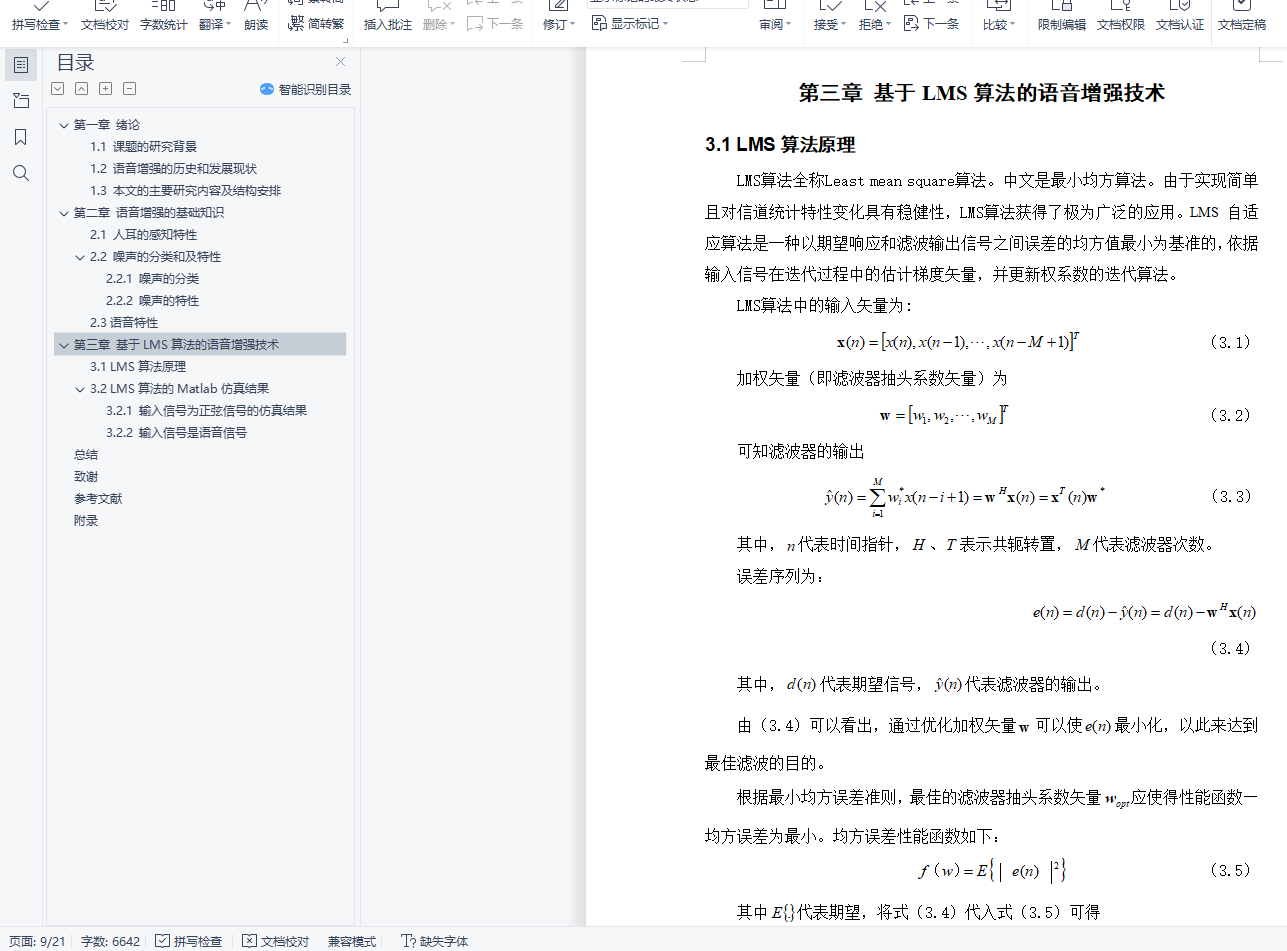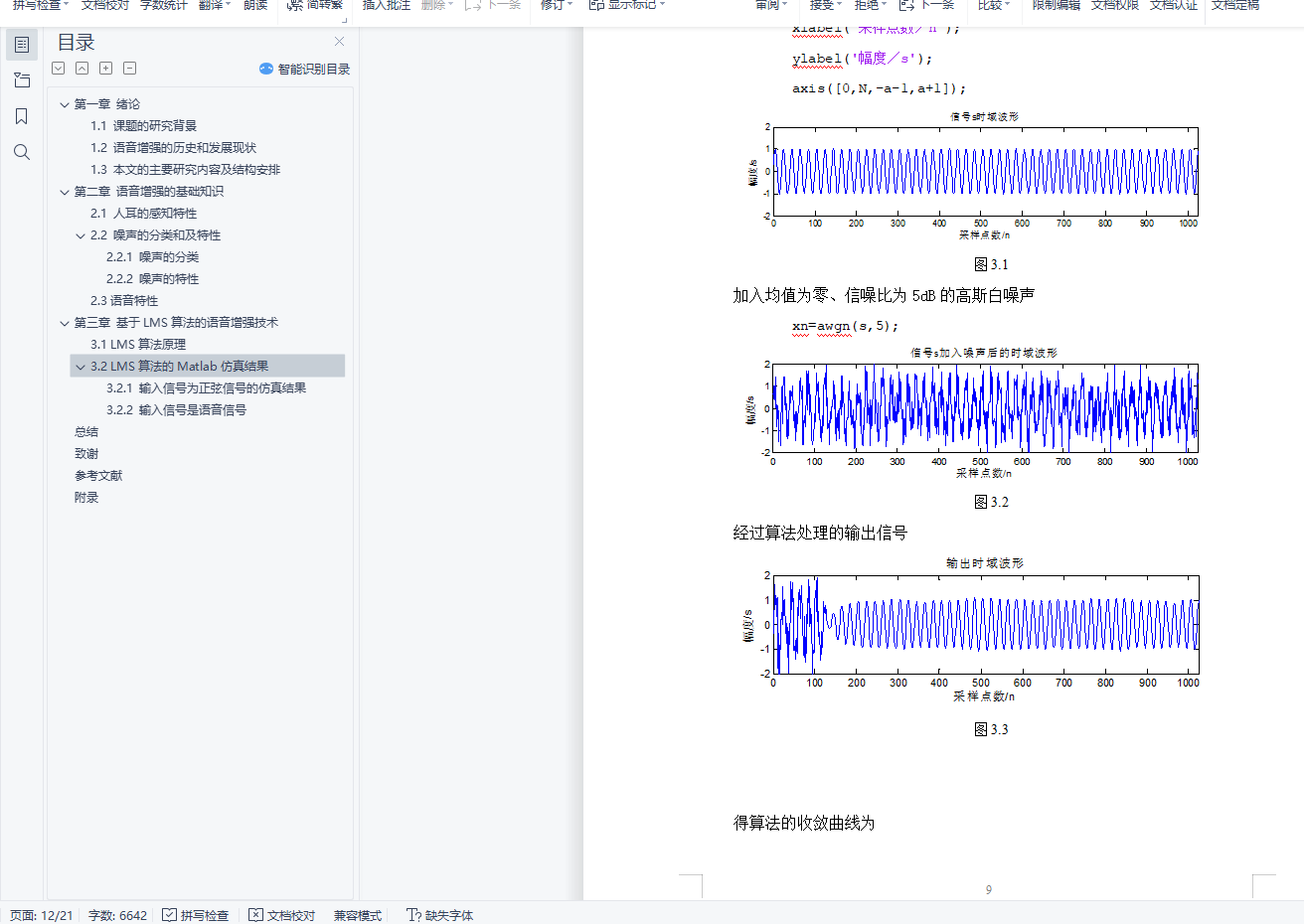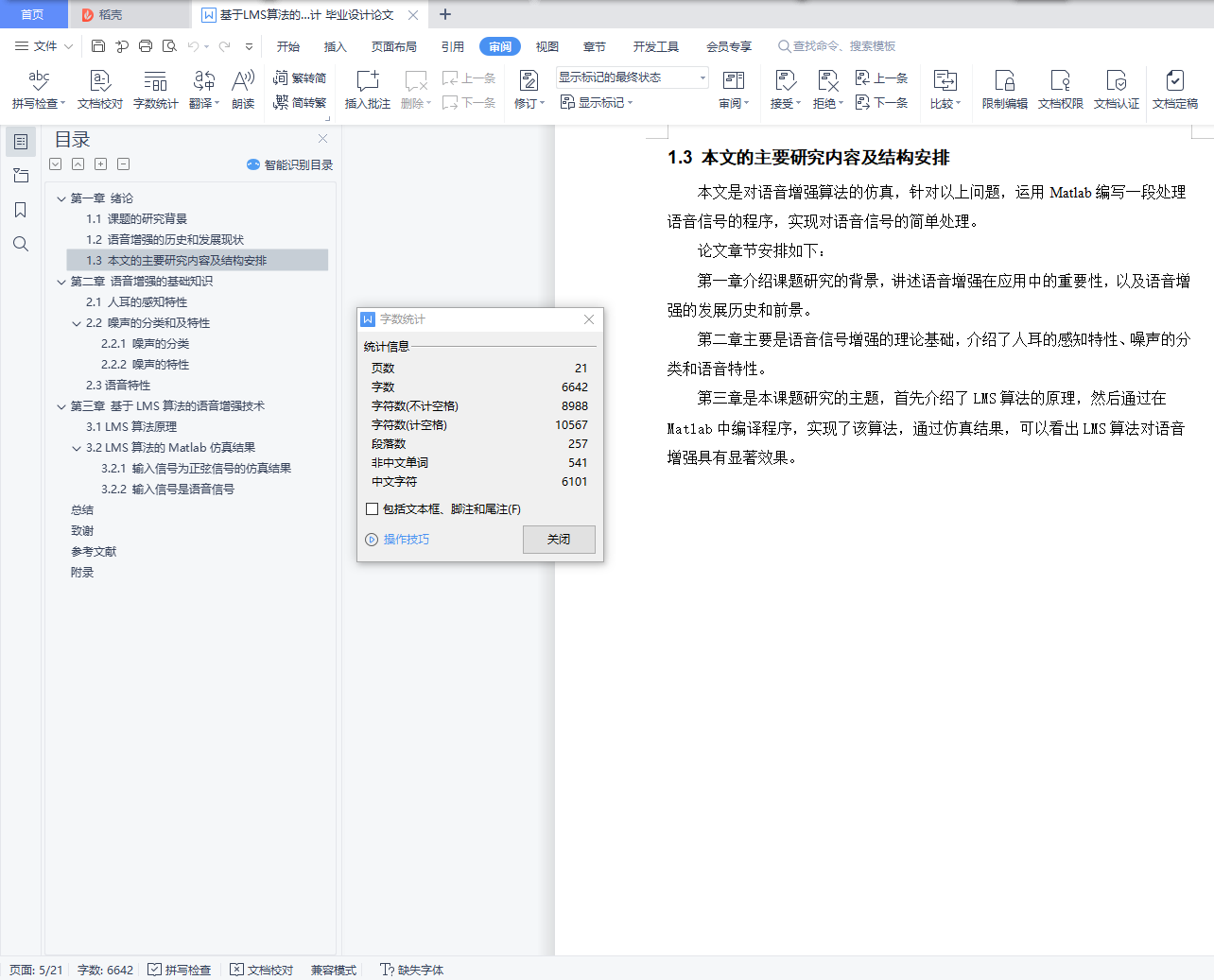摘要
人们在语音通信的过程中,常常会受到各种环境噪声的干扰,如餐厅的噪声、汽车噪声以及其他人的讲话声等。由于各种类型的噪声,现今的语音通信系统严重恶化。噪声不仅会影响语音的质量,更会使人耳感觉疲劳。
语音增强算法是旨在尽可能的消除语音信号中的噪声,提高语音信号的可懂度及减小失真度。经过数十年的发展,大量的语音增强算法被提出,本文主要研究其中的LMS算法,并通过Matlab仿真实现该算法。LMS算法也就是最小均方算法,在上世纪60年代就被提出,由于其实现简单并且对信道统计特性变化具有稳健性,获得了极为广泛的应用。实验结果表明,LMS算法具有良好的语音增强效果。
关键词:语音增强,噪声,质量,可懂度,LMS算法
ABSTRACT
In the process of speech communication,people always be interfered by noise which exist in natural environment,such as noise in restaurant,car and other people's voices.Due to various type of noise,speech communication system of today become worse and worse.Noise not only affects the quality of the speech, but also will make people’ear feel tired.
Speech enhancement algorithm aim at eliminate the noise in noisy speech signal as much as possible, improve the intelligibility of noisy speech signal and reduce distortion.After several decades of development, a large number of speech enhancement algorithms have been proposed,this paper studies the LMS algorithm which is one of the speech enhancement algorithms,and simulate the algorithm by using Matlab.LMS algorithm,also known as Least mean square algorithm,was proposed in the 1960s,it is widely used in various fields,because of it can be simply realized and keep steady while
ualityLMS algorithm
目录
第一章 绪论
1.1 课题的研究背景
1.2 语音增强的历史和发展现状
1.3 本文的主要研究内容及结构安排
第二章 语音增强的基础知识
2.1 人耳的感知特性
2.2 噪声的分类和及特性
2.2.1 噪声的分类
2.2.2 噪声的特性
2.3语音特性
第三章 基于LMS算法的语音增强技术
3.1 LMS算法原理
3.2 LMS算法的Matlab仿真结果
3.2.1 输入信号为正弦信号的仿真结果
3.2.2 输入信号是语音信号
总结
致谢
参考文献
附录








